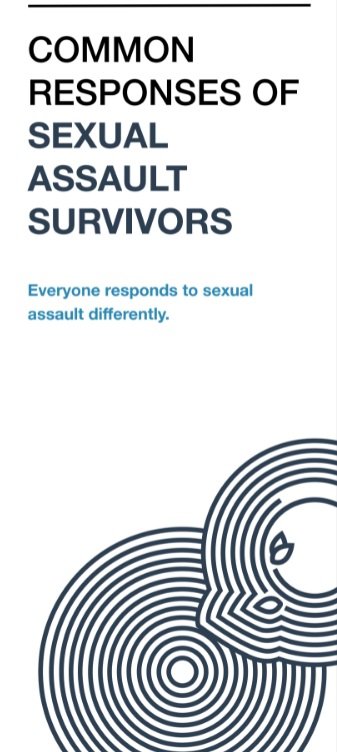
Facts About Intimate Partner & Sexual Violence
Every 6 days on average, a woman in Canada is killed by her intimate partner.
Intimate partner violence is abuse or aggression that occurs in a romantic relationship. “Intimate partner” refers to both current and former spouses and dating partners. It includes physical, sexual, verbal and emotional abuse and controlling behaviours by an intimate partner.
Intimate partner violence1 (IPV) occurs in all settings and among all socioeconomic, religious and cultural groups.
“Anybody can be abused, no matter their background, identity, or circumstance. But women, girls, and gender-diverse people are at high risk of gender-based violence. Some are at even higher risks, due to the additional discrimination and barriers they face. This includes women with disabilities, Indigenous women, racialized women, trans and non-binary people, and women who are homeless or underhoused.” - Canadian Women’s Foundation
See the bottom of this page for downloadable resources and additional information on IPV. If your partner is exhibiting any of the behaviours above, please here
1 in 3 women and 1 in 6 men experience sexual violence in their lifetime.
Sexual violence refers to any form of unwanted sexual contact, sexual assault and sexual harassment.
Sexual assault refers to unwanted sexual activity (e.g. touching, kissing someone without consent, rape) and is a crime of violence committed against someone’s will. It is an act of power and aggression - not sexuality. Individuals who have experienced sexual assault, regardless of any risks they may have taken are not to blame for the assault. Sexual assault is the only crime in which the individual may feel or be treated as the accused. Common reactions and feelings of survivors of sexual assault include shock, disbelief, embarrassment, fear, denial, depression, helplessness, disorientation, anxiety, and anger.
See the bottom of this page for downloadable resources and additional information on sexual violence. For details of all our services available for survivors of sexual violence, see our Programs & Services page. To speak with a Support Worker regarding services & to book an appointment, please contact us
How can I help if someone I know is being abused?
Start by believing. Be supportive, empathetic and understanding. One of the biggest barriers for survivors is the reaction of those around them. Remember that the assault is only one part of the person’s life.
Ask how you can be of most help to the survivor.
Encourage the survivor to talk about the assault without prying. “Ex. Tell me as much as you are comfortable with”.
Help the survivor to make decisions, i.e. who to tell, whether to report to the police, where to stay, etc. Do not take over for them.
Understand that people who have been sexually assaulted often can’t take out their anger and frustration on the attacker and may instead, vent these feelings on family and friends. Old problems seem greater.
Contact us to find out more about ways in which you can help.









